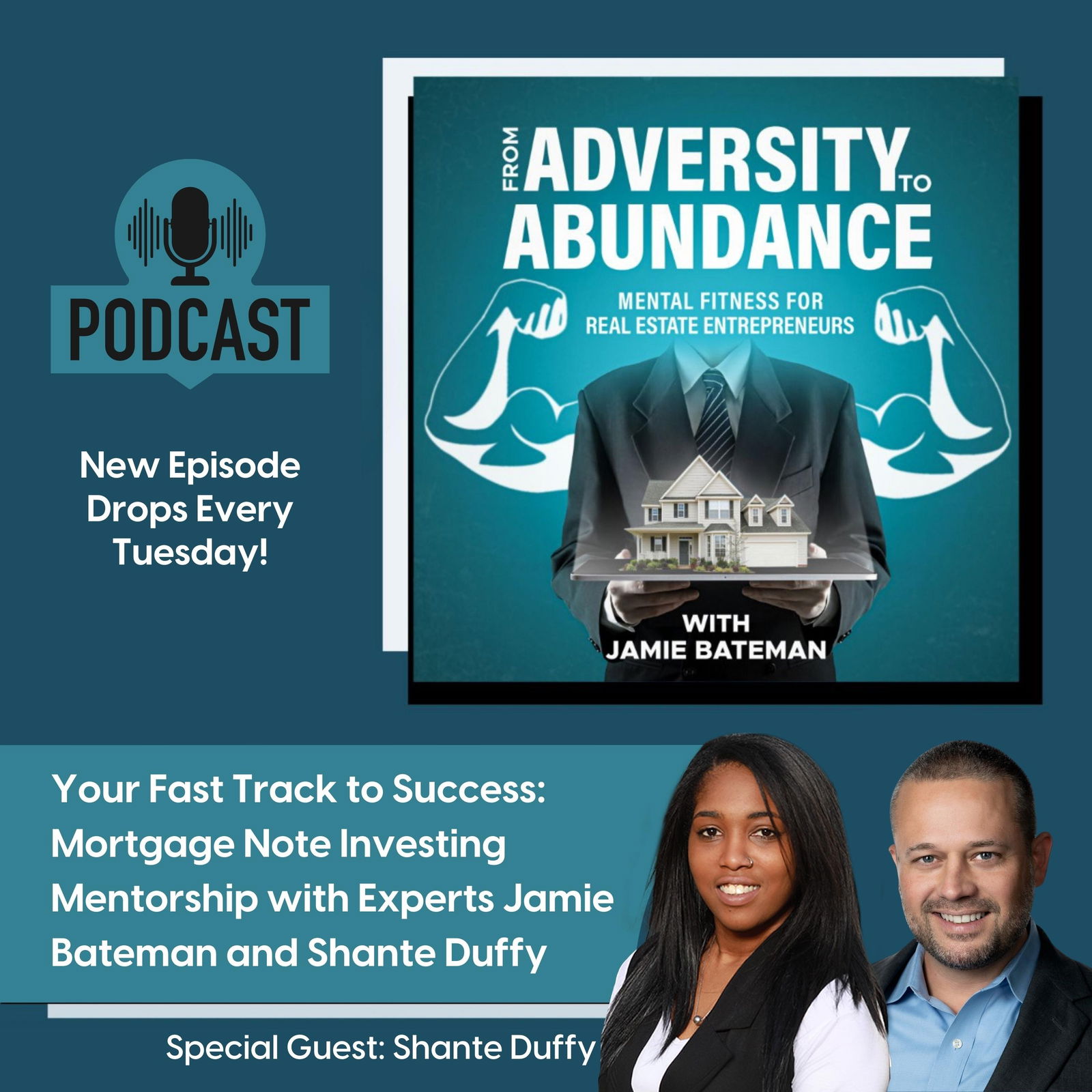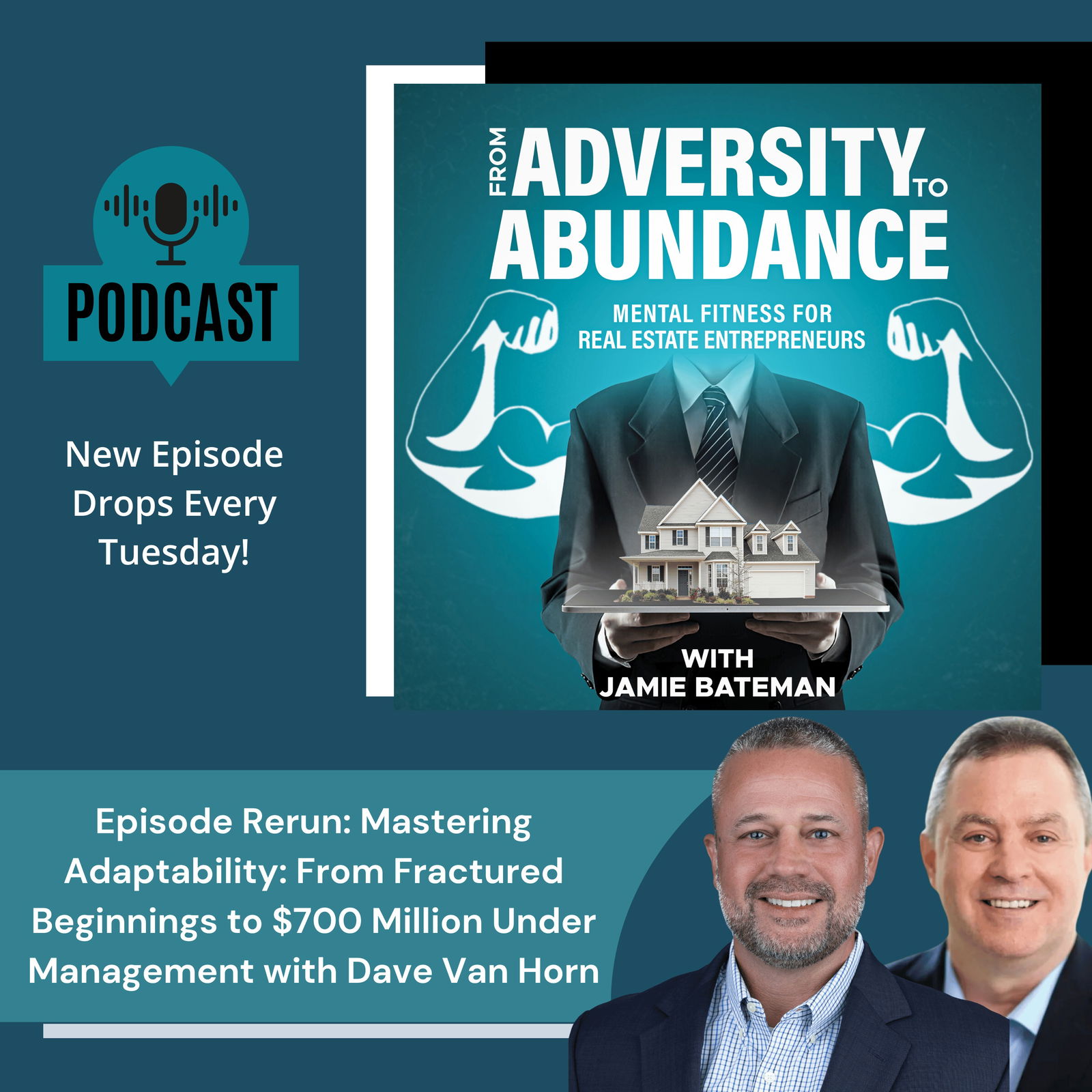Your Fast Track to Success: Mortgage Note Investing Mentorship with Experts Jamie Bateman and Shante Duffy

In this episode of the From Adversity to Abundance Podcast, Jamie Bateman and Shante Duffy delve into the realm of mortgage note investing, emphasizing the importance of benefiting from resilience and mental fitness of a mentor. They take us on a ...
In this episode of the From Adversity to Abundance Podcast, Jamie Bateman and Shante Duffy delve into the realm of mortgage note investing, emphasizing the importance of benefiting from resilience and mental fitness of a mentor. They take us on a journey through the challenges and triumphs of real estate, focusing on mortgage note investing. They highlight the transformative power of personalized mentorship and its role in navigating the complexities of the market. Tune in to discover how to turn adversity into abundance in your real estate pursuits.
Benefits of Mentorship
In the competitive world of real estate, particularly mortgage note investing, personalized mentorship can be a game-changer. A focused mentoring program provides consulting, coaching, and a direct channel to industry experts. This kind of guidance not only offers invaluable expertise but also helps you avoid common pitfalls encountered by new investors.
Importantly, a personalized mentor connects you with vendors and other professionals in the field, offering you a network that broadens your opportunities for success. The hourly sessions might provide structured learning, but the real value often lies in the between-call interactions and referrals that chart the course of your investing journey.
Connect with Shante Duffy
Facebook: https://www.facebook.com/profile.php?id=100011720582564
LinkedIn: https://www.linkedin.com/in/shante-duffy-60b592119/
Integrity Income Fund:
https://investors.appfolioim.com/labradorlending/investor/submit_interest/5
—
Labrador Mentorship:
https://labradorlending.com/investors/active-investors/
—
Haven Financial Services:
Learn more: https://jamie.myfinancialhaven.com/
—
Purchase Jamie’s Book: https://www.amazon.com/dp/B0CGTWJY1D?ref_=pe_3052080_397514860
—
Leave us a REVIEW: https://podcasts.apple.com/us/podcast/from-adversity-to-abundance/id1618672867?mt=2&ls=1
https://www.adversity2abundance.com/reviews/new/
—
Podpage:
Calling all aspiring podcasters and seasoned pros! Transform your podcast with a stunning website in minutes. Sign up for Podpage today to effortlessly grow your audience with our easy-to-use tools.
Sign up here: https://www.podpage.com/?via=jamie-bateman
Connect with us
Website: https://www.adversity2abundance.com
Facebook: https://www.facebook.com/profile.php?id=100089126144055
Instagram: https://www.instagram.com/adversitytoabundancepodcast/
LinkedIn https://www.linkedin.com/company/89949391/admin/feed/posts/
Youtube: https://www.youtube.com/@FromAdversity2AbundancePodcast
Connect with Jamie
LinkedIn: https://www.linkedin.com/in/jamie-bateman-5359a811/
Twitter: https://twitter.com/batemanjames





